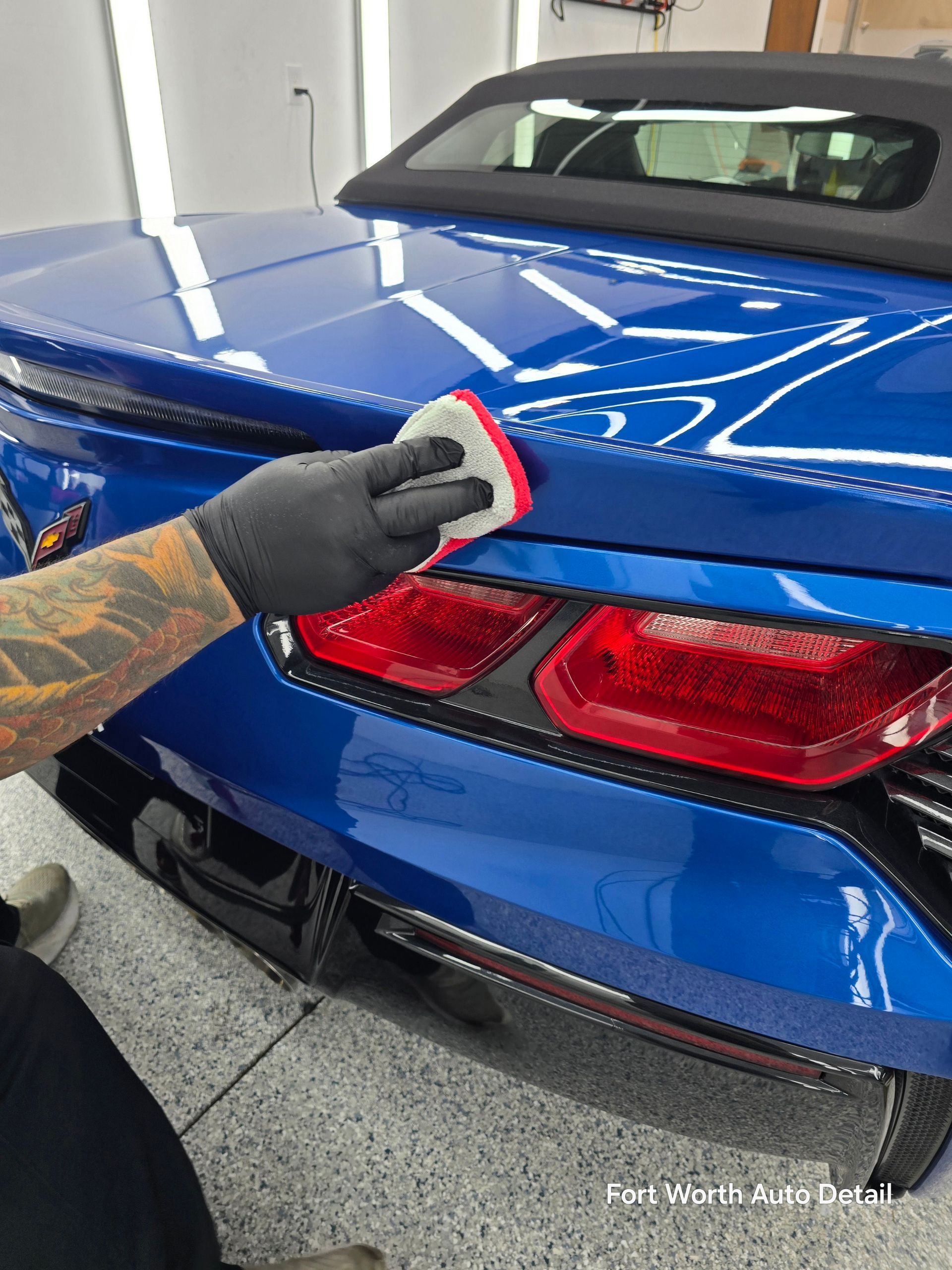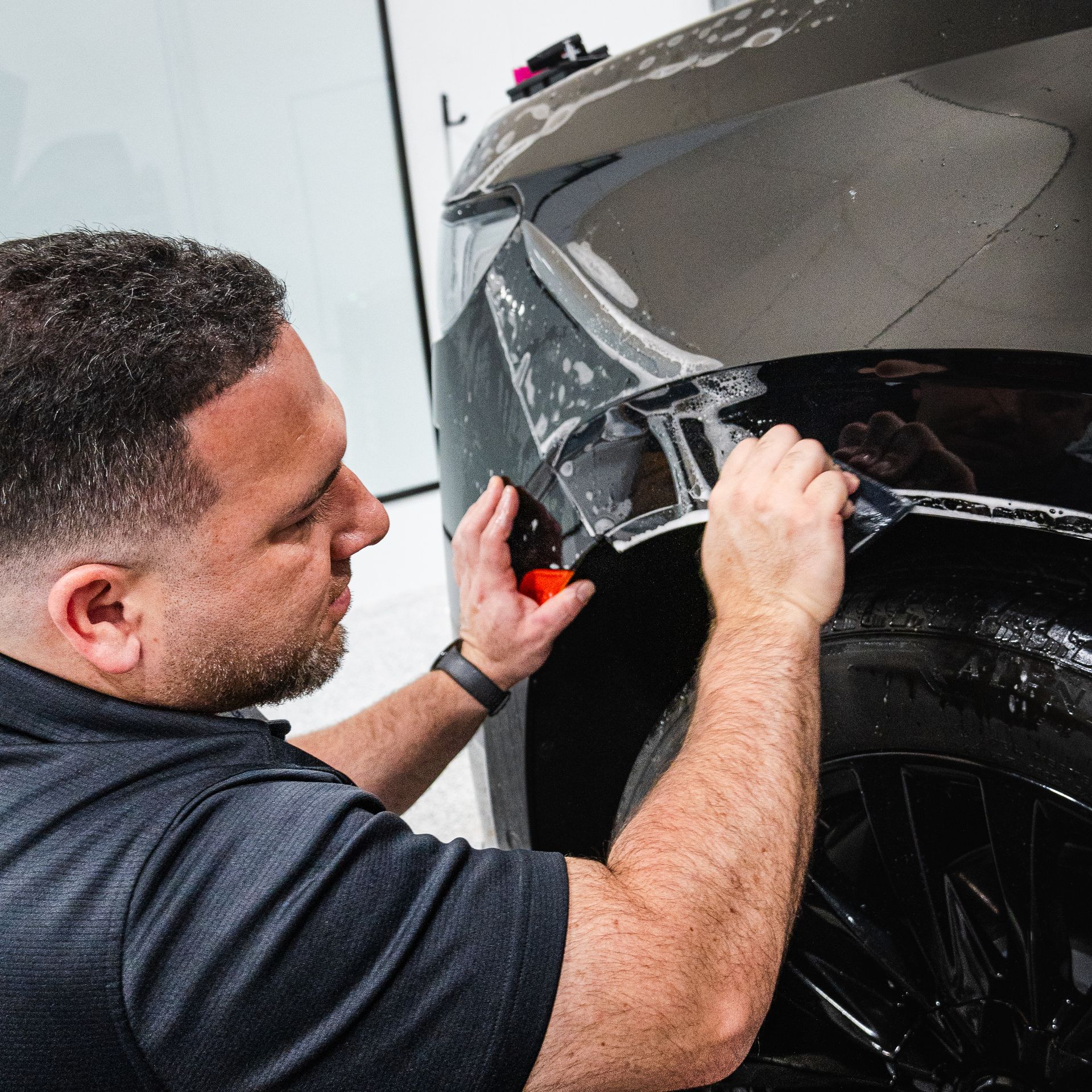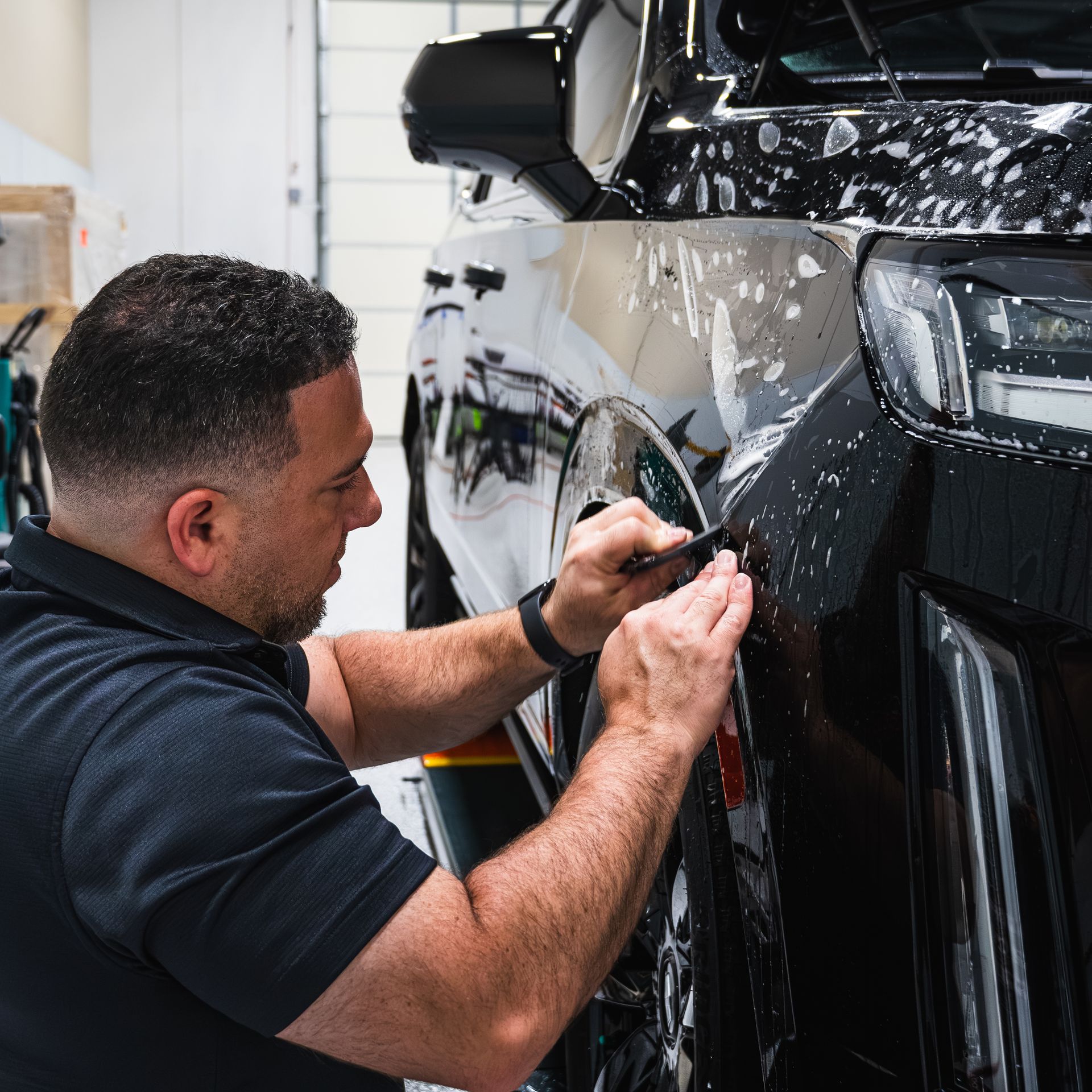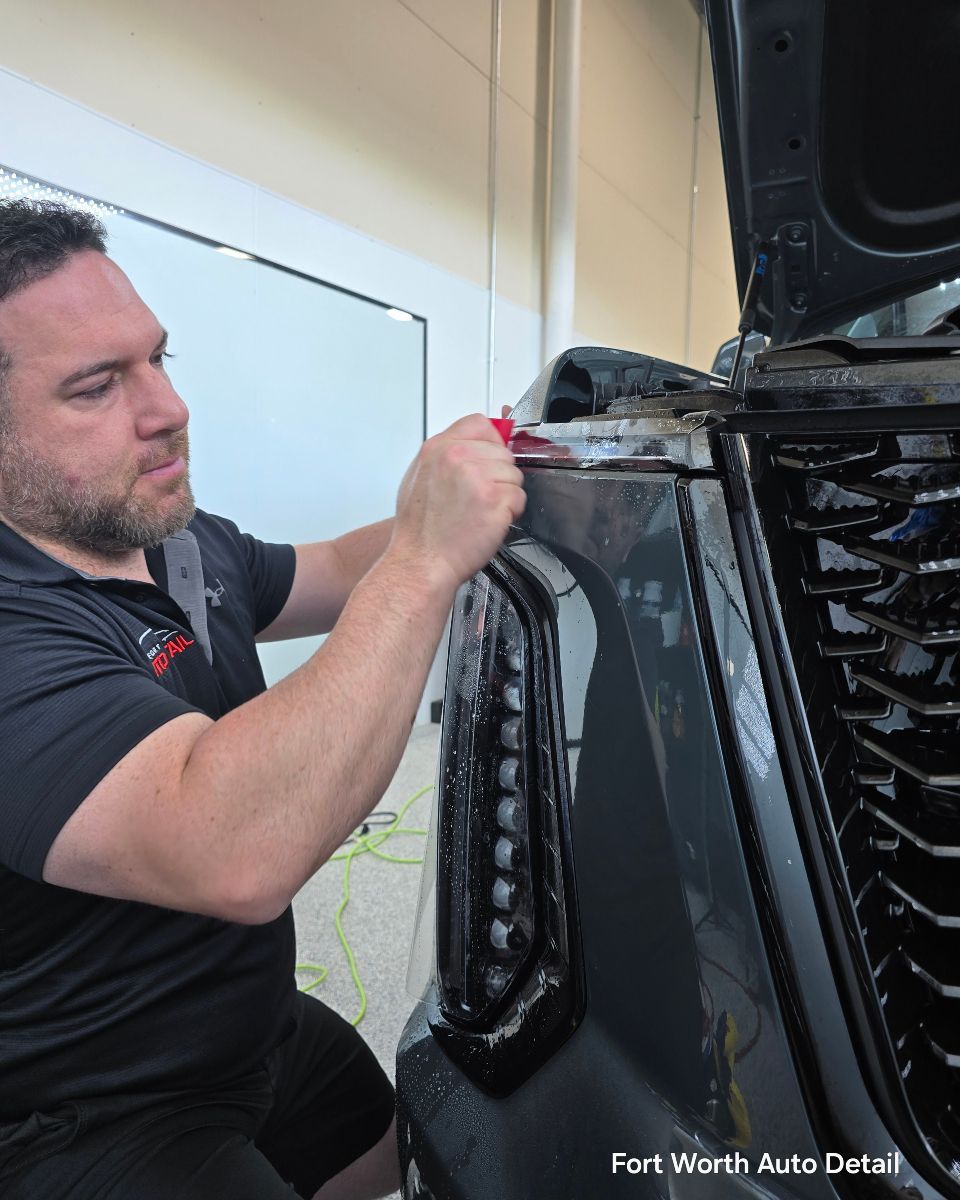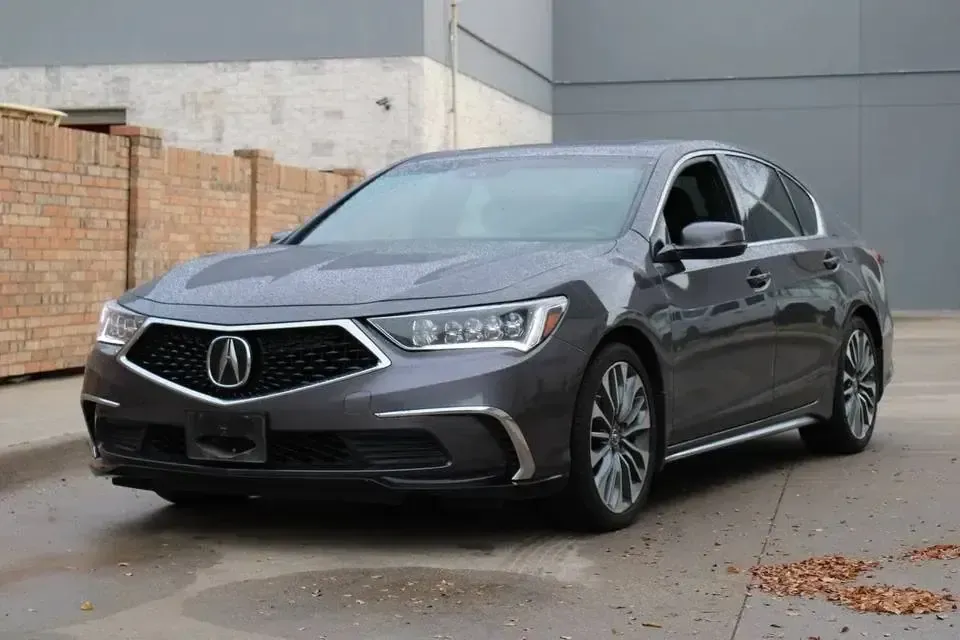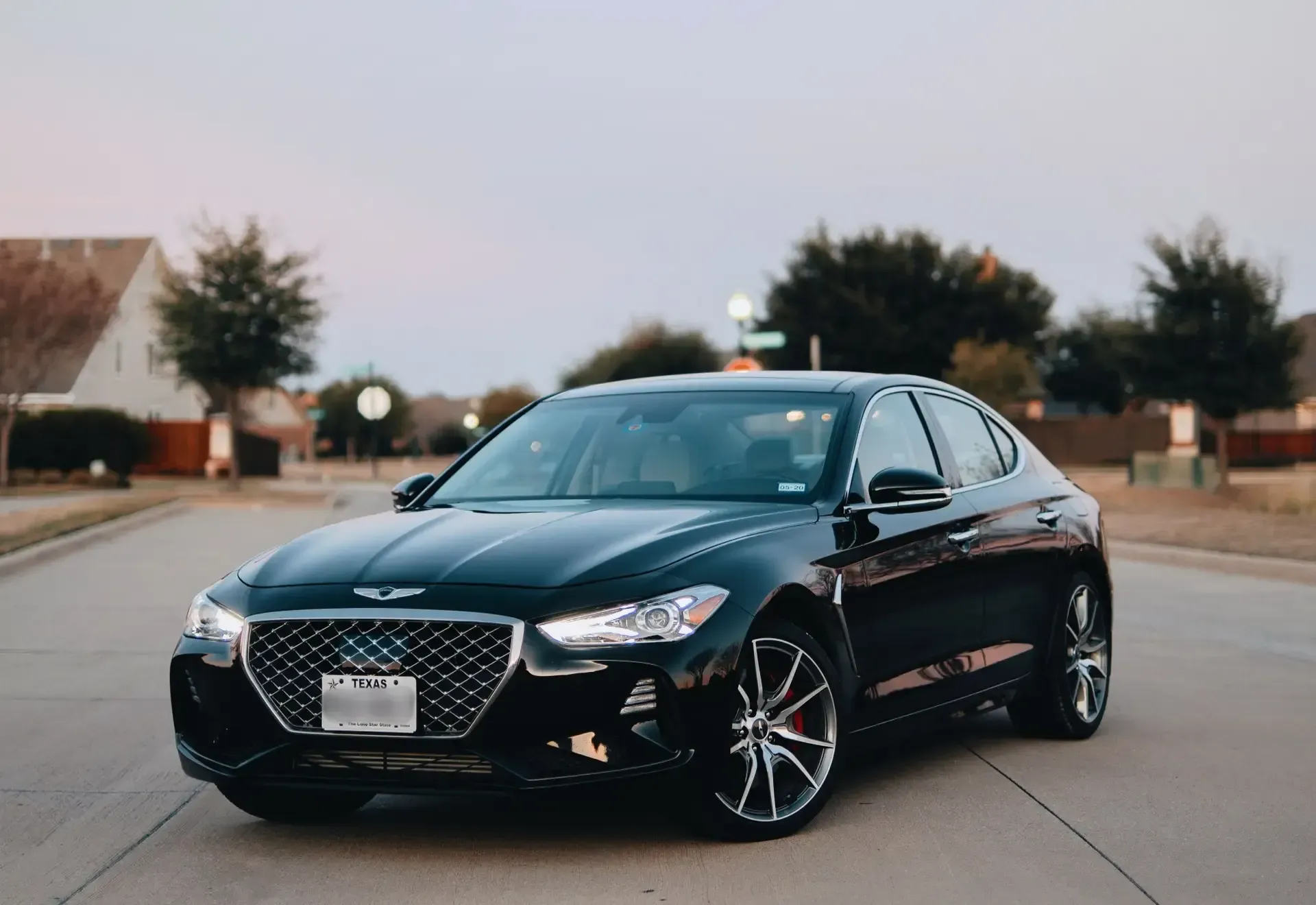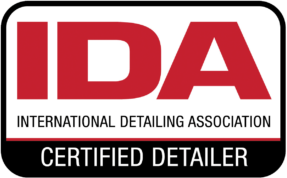Maintaining Your Paint Protection Film: Essential Care for Fort Worth Vehicle Owners
When you invest in paint protection film (PPF) for your vehicle, you're making a smart decision to preserve your car's appearance and value. Whether you drive a luxury sedan through Aledo's upscale neighborhoods or navigate Fort Worth's busy streets in your daily driver, proper PPF maintenance ensures your investment continues to pay dividends for years to come. Paint protection film acts as an invisible shield, protecting your vehicle's paint from scratches, road debris, and environmental damage. However, like any premium automotive investment, it requires proper care to maintain its effectiveness and appearance. This comprehensive guide will walk you through the essential maintenance practices that keep your PPF performing at its best.
Understanding the Importance of Proper PPF Care
Regular maintenance of your paint protection film serves multiple purposes beyond just keeping your vehicle looking pristine. Proper care prevents dirt and contaminants from building up, which can compromise the film's protective qualities and reduce its lifespan. Think of PPF maintenance as preventive care for your vehicle's exterior—consistent attention now prevents costly repairs or premature replacement later. The investment you've made in paint protection film deserves the same level of care you'd give any other premium automotive component. With proper maintenance, quality PPF can protect your vehicle's finish for many years, maintaining both its aesthetic appeal and resale value.
Essential Cleaning Guidelines
- Choose the Right Products: The foundation of effective PPF maintenance lies in selecting appropriate cleaning products. Always use pH-neutral car wash soap specifically formulated for automotive surfaces. These gentle cleansers effectively remove dirt and grime without stripping away protective layers or causing chemical damage to the film. Avoid harsh detergents, household cleaners, or any products containing bleach, ammonia, or acidic ingredients. These substances can seriously degrade the film over time, causing discoloration, cloudiness, or even complete failure of the protective barrier.
- Implement Proper Washing Techniques: The two-bucket wash method provides the safest approach for cleaning your PPF-protected vehicle. Use one bucket filled with clean, soapy water and another with plain water for rinsing your wash mitt or sponge. This technique prevents dirt from being reintroduced onto the surface, minimizing the risk of scratches caused by trapped debris. High-quality microfiber cloths are essential tools for PPF maintenance. These specially designed cloths trap dirt and dust within their fibers without scratching the film's surface. Choose plush microfiber cloths that provide gentle contact with your vehicle's protected surfaces.
- Address Spot Cleaning Immediately: Environmental contaminants like bird droppings, tree sap, and road tar require immediate attention to prevent permanent staining or damage. For these situations, create a mild cleaning solution by mixing water with a small amount of gentle soap in a spray bottle. Apply this solution directly to the affected area and gently wipe away the residue using a clean microfiber cloth. Swift action prevents these contaminants from bonding with the film's surface or causing chemical etching. The longer these substances remain on your PPF, the more difficult they become to remove and the greater the potential for permanent damage.
Products and Practices to Avoid
- Harmful Cleaning Products: Several common automotive cleaning products can cause significant damage to paint protection film. Abrasive cleaners containing harsh chemicals or scrubbing agents can scratch the film's surface, leading to visible marks and reduced protective qualities. Ammonia-based products are particularly problematic, as they can cause discoloration and weaken the film's adhesive properties. Similarly, acidic solutions such as vinegar-based cleaners or citrus-based products can cause etching or cloudiness on the film's surface. Even though these products may seem gentle or natural, they can compromise both the appearance and functionality of your PPF.
- Mechanical Damage Prevention: Avoid using abrasive materials such as scrub brushes, steel wool, or rough towels on your PPF. These materials can create micro-scratches that accumulate over time, eventually requiring film replacement. Additionally, avoid applying excessive pressure while washing, as this can cause premature wear or damage to the film's edges. High-pressure washing systems pose another risk to paint protection film. The intense water pressure can lift the film's edges or create bubbles underneath the surface. Instead, use a standard garden hose with moderate water pressure for rinsing your vehicle.
Enhancing Film Longevity
Conducting monthly visual inspections helps identify potential issues before they become major problems. Look for signs of lifting at the edges, small tears, air bubbles, or any changes in the film's appearance. Early detection allows for prompt repairs that prevent minor issues from escalating into costly replacements. Pay particular attention to high-impact areas such as the front bumper, hood, and side mirrors, where road debris is most likely to cause damage. Also check areas where the film meets paint or other surfaces, as these transition zones are vulnerable to lifting or peeling. Parking your vehicle in shaded areas or garages whenever possible significantly extends your PPF's lifespan. Prolonged exposure to intense sunlight can cause fading and deterioration of the film's protective properties.
The Texas sun can be particularly harsh, making shade even more important for Fort Worth area vehicles. When garage parking isn't available, consider using a car cover designed for vehicles with paint protection film. These covers provide additional protection against UV rays, bird droppings, and other environmental hazards while allowing the film to breathe properly. Consider professional maintenance services for deep cleaning and inspection of your paint protection film. Professional detailers have specialized tools and knowledge to safely clean and maintain PPF without causing damage. They can also identify potential issues that might not be apparent to the untrained eye. Many professional services offer ceramic coating applications over paint protection film, providing an additional layer of protection and making routine cleaning easier. This combination approach maximizes the protective benefits while simplifying maintenance requirements.
Waxing and Protection Enhancement
When selecting wax or sealant products for PPF-protected vehicles, look specifically for formulations labeled as safe for paint protection film. Traditional automotive waxes may contain ingredients that can cause discoloration or interfere with the film's properties. Spray waxes and liquid sealants designed for PPF provide excellent protection while being easy to apply and remove. These products should be applied using gentle, circular motions with a clean microfiber cloth, avoiding excessive pressure that could damage the film. Apply protective products in thin, even coats rather than heavy applications that can create buildup or streaking. Work in small sections to ensure complete coverage while preventing the product from drying before you can buff it out properly. Avoid using high-speed buffing tools or aggressive polishing techniques on paint protection film. These methods generate excessive heat that can damage the film or cause it to lift at the edges. Hand application with microfiber cloths provides the safest and most effective results.
Common Maintenance Mistakes
- Over-Washing: While cleanliness is important, excessive washing can actually harm your paint protection film. Overwashing can strip away protective layers and cause micro-abrasions that compromise the film's integrity. Most vehicles benefit from washing every two to three weeks, with more frequent cleaning only necessary after exposure to particularly harsh conditions.
- Neglecting Minor Issues: Small problems with paint protection film can quickly become major issues if left unaddressed. Minor lifting at edges, small tears, or trapped debris should be dealt with promptly to prevent further damage. Professional repair of minor issues is typically quick and inexpensive compared to full film replacement.
- Using Inappropriate Tools: Automated car washes with brushes or aggressive cleaning systems can damage paint protection film through excessive friction or chemical exposure. These facilities often use recycled water and harsh detergents that aren't suitable for PPF maintenance. Hand washing or touchless car washes provide safer alternatives.
Seasonal Considerations for Fort Worth Vehicles
The intense Texas heat and UV exposure during summer months require extra attention to your paint protection film. More frequent inspections help identify any heat-related issues early, while consistent use of shaded parking prevents accelerated aging of the film. Summer also brings increased insect activity, making prompt removal of bug residue important for maintaining your PPF's appearance and integrity. Fort Worth's occasional severe weather, including hailstorms, can test your paint protection film's durability. After any severe weather event, inspect your PPF for damage and address any issues promptly. The film's ability to absorb impact and protect your paint makes these inspections particularly valuable. Winter road treatments and increased debris during construction season may require more frequent cleaning to prevent buildup of corrosive materials on your vehicle's surface.
Maximizing Your Investment
Proper maintenance of your paint protection film isn't just about preserving appearance—it's about protecting a significant investment in your vehicle's long-term value. Well-maintained PPF continues to provide protection for many years, while neglected film may fail prematurely, leaving your paint vulnerable to damage. The time and effort invested in proper PPF care pays dividends through extended film life, maintained vehicle appearance, and preserved resale value. For owners of luxury and high-end vehicles, this maintenance represents smart stewardship of valuable assets. By following these comprehensive maintenance guidelines, you ensure that your paint protection film continues to provide excellent protection while keeping your vehicle looking its best. Whether you're driving through Fort Worth's urban environment or enjoying the scenic routes around Aledo, proper PPF care keeps your investment protected and your vehicle looking pristine for years to come.
Fort Worth’s Best Paint Protection Film
Protect your investment with Fort Worth Auto Detail’s
premium paint protection film services. Our expert installers apply high-quality PPF designed to defend your vehicle against road debris, harsh weather, and everyday wear—keeping its finish flawless and factory-fresh. With custom-fit applications and long-lasting durability, your car gets the protection it deserves without sacrificing style.
Schedule your PPF installation today
and drive with confidence knowing your paint is safeguarded mile after mile!
